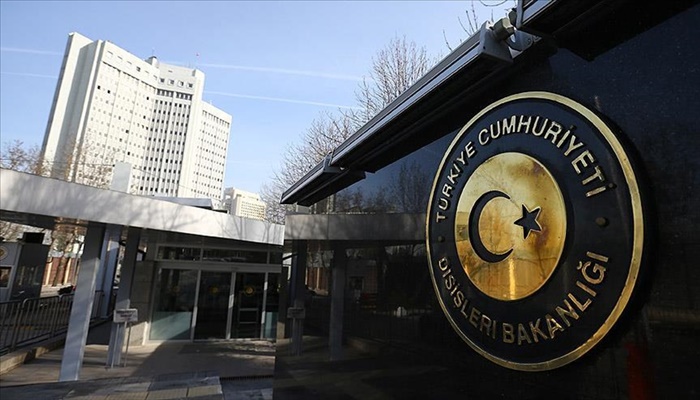Turkey lambasted the European Parliament over a resolution adopted on Thursday demanding that Ankara lift an ongoing state of emergency, calling it “null and void.”
“The resolution adopted today by the European Parliament on the ‘Current Situation of Human Rights in Turkey’ is far from understanding the current conditions Turkey faces,” the Ministry of Foreign Affairs said in a statement.
“The EP’s resolution is nothing but a patchwork of ungrounded claims compiled one after the other from various sources, just for the sake of criticism,” said the statement.
“Adopting effective measures such as the State of Emergency, which is needed to fully eliminate the threats against the existence of our State and our nation’s right to democratic life, is the duty and an incontestable right of the Republic of Turkey. In fact, the State of Emergency is not a method adopted by our country alone; it has indeed been employed by some other EU Member States for national security reasons,” added the Ministry of Foreign Affairs.
“None of the individuals mentioned in the resolution as “arrested journalists, MPs, human rights defenders” have been prosecuted due to practising their professions; investigations have been initiated by the independent judiciary because of indictments against them.”
Rebuffing the EP’s criticism about a Turkish operation in the Afrin region of Syria, the statement concluded: “As an institution allowing the rags of the terror organization to be hung in its own buildings, it is not surprising that such a resolution has been adopted by the European Parliament. This is also the clearest indicator of our country’s and the Turkish people’s rightfulness in no longer being able to take seriously the EP which has long lost its credibility. Therefore, this resolution is null and void for us.”
Members of the European Parliament on Thursday called on Turkey to lift an ongoing state of emergency declared after a failed coup in July 2016 that they say is now being used to silence dissent and opposition.
“The state of emergency declared after the coup attempt of 16 July 2016 is currently being used to further stifle legitimate and peaceful opposition,” the MEPs stressed in a press statement released on Thursday, reiterating their “strong condemnation of the failed military takeover. Since then, more than 160 media outlets have closed and Turkey’s civil society faces a massive crackdown.”
The MEPs also condemned Turkey’s repression of criticism over its recent assault Afrin, in northwestern Syria.
“MEPs condemn the recent arrests of journalists, activists, doctors and ordinary citizens for expressing their opposition to Turkey’s military intervention in the Kurdish-controlled enclave of Afrin in Syria …” the statement said. “They are seriously concerned about the humanitarian consequences of the Turkish assault and warn against continuing with these disproportionate actions.”
In their condemnation of a massive crackdown on civil society and press freedom in Turkey, the MEPs urged Turkish authorities not only to end the state of emergency but also to “immediately and unconditionally release all those who have been detained for simply carrying out their legitimate work, exercising their freedom of expression and association, or without proof, including EU citizens such as the German journalist Deniz Yücel and the four Cumhuriyet journalists, who are still behind bars; drop charges against the Finnish-Turkish Ayla Albayrak, who has been convicted by a Turkish court in absentia; release one of the leading NGO leaders, Osman Kavala, as his arrest is politicised and arbitrary; drop all charges against Amnesty International’s Turkey president, Taner Kılıç, and his co-defendants, as no concrete evidence has yet been submitted against them; and reject capital punishment and respect the European Convention on Human Rights.”
The MEPs also proposed in their statement that “[t]he funds destined for Turkey under the Instrument for Pre-Accession Assistance (IPA II) should be conditional on improving its record on human rights, democracy and the rule of law.”

